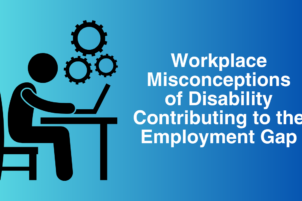For tens of thousands of Americans with disabilities, working a full day for less than a dollar an hour is a harsh reality. But it’s one that we have the power to change.
The Transformation to Competitive Integrated Employment Act (TCIEA) H.R.1263 and S.533 is a landmark piece of legislation that aims to create a more equitable workforce for people with disabilities. Its primary goal is to end the outdated practice of paying subminimum wages to persons with disabilities through sheltered workshops that operate under Section 14 (c) of the Fair Labor Standards Act. This provision allows employers to obtain a 14(c) certificate, permitting them to pay workers with disabilities less than the federal minimum wage.
Sheltered workshops often isolate disabled people from the rest of the workforce. According to a 2023 U.S. Government Accountability Office (GAO) report, more than half of these workers earn less than $3.50 per hour, with some making as little as $0.25 per hour. This practice affects approximately 42,000 persons with disabilities across the United States. The TCIEA seeks to change this by creating pathways for persons with disabilities to transition into competitive, integrated employment, where they can receive equal pay and access real opportunities for job development, training, and career advancement.
A Fair Day’s Pay for a Fair Day’s Work
The justification for paying people with disabilities less than minimum wage often stems from the flawed misconception that they cannot perform at the same level as their non-disabled peers. Companies like Honda, historically Boeing, and even the U.S. government, have partnered with sheltered workshops, which shows that people with disabilities contribute significantly to production and the economy. Yet, despite their valuable work, disabled workers have been paid incredibly low wages.
Discrimination Based on Disability
Sheltered workshops often use time trials to determine wages, evaluating workers’ compensation on how quickly they complete tasks. This is an unfair and discriminatory practice considering non-disabled workers doing the same tasks are not subject to such assessments. Instead, they are paid based on the value of their work, regardless of speed. The Americans with Disabilities Act (ADA) mandates reasonable accommodations for workers with disabilities, including additional time to complete tasks and adjustments to the work environment. Yet, sheltered workshops bypass these protections, holding workers to rigid productivity standards that often result in subminimum wages if they are deemed “too slow.” This practice not only undermines the dignity of workers with disabilities but also directly contradicts the ADA’s intent to create an equitable work environment for all.
Since sheltered workshops base worker performance solely on speed, this reinforces the false perception that workers with disabilities are not as capable as non-disabled workers; when in reality, with a lack of accommodations, and an unnecessary assessment, companies perpetuate harmful stereotypes about disabled workers production rate and value.
Alternatives to 14(c) Sheltered Work
There are many alternatives to the traditional subminimum wage model that promote dignity, independence, and fair wages for people with disabilities. Competitive integrated employment (CIE) aims to ensure that individuals with disabilities can access fairly compensated employment opportunities in integrated settings alongside their non-disabled peers. One such CIE option is supported employment, which provides ongoing support to both employees and employers. This includes services such as job coaching and on-the-job individualized assistance for employees.
Another approach is customized employment, which is a flexible, tailored strategy that aligns job roles with the strengths, interests, and needs of both the job candidate and the employer. This individualized process aims to create a mutually beneficial working relationship, addressing the specific needs of one candidate and one employer at a time.
Examples of customized employment include:
- Task reassignment, in which certain tasks are shifted from current employees to a new hire. This enables existing staff to focus on their core duties while also addressing unmet workplace needs.
- Job carving, which involves modifying an existing job description to focus on specific tasks that align with the new hire’s skills.
- Job sharing, where the responsibilities of a single job are divided among two or more individuals, allowing each person to concentrate on tasks that match their strengths.
Some states and the federal government financially incentivize businesses to hire people with disabilities. Additionally, there are grants and loans available for people with disabilities interested in starting their own small businesses.
How TCIEA Supports Transition and Success
Phasing out subminimum wages has already shown extremely positive results. A recent report from the Association of People Supporting Employment First (APSE) reveals that states eliminating 14(c) certificates have seen an increase in employment rates for people with disabilities. This shows that people with disabilities can thrive in competitive job environments when given proper support. TCIEA provides the financial backing to make this transition possible, with funding allocated to states and sheltered workshops to ensure that people with disabilities receive job training, coaching, and other necessary resources.
A 2023 study by Accenture and AAPD revealed that companies leading in disability inclusion obtain significant financial benefits, including 1.6 times more revenue, 2.6 times greater net income, and twice the economic profit compared to other companies in their annual benchmark survey. This evidence challenges the misconception that employing more workers with disabilities burdens productivity; instead, it shows that a commitment to inclusion can drive both productivity and profitability.
Money Currently Being Spent
In 2021, 26 states spent at least $431 million taxpayer dollars on work services in 14(c) facilities, and 88 percent of that funding came from Medicaid, according to data shared with the Washington Post from UMass Boston’s Institute for Community Inclusion. However, because not all 37 states using 14(c) certificates reported their spending, the total amount is likely much higher. These taxpayer dollars could be redirected toward helping workers transition to supported or customized employment through TCIEA, transforming lives and the workforce in the process. Instead of subminimum wages, these funds could be invested in real job training, coaching, and career development, giving people with disabilities fair pay and genuine opportunities to flourish in the workforce.
The Importance of Representation of People with Disabilities in the Workforce
Increasing the presence of people with disabilities in the workforce through competitive integrated employment is crucial for normalizing having a diverse workplace. This shift mirrors the progress made by women and other minority groups in breaking into traditionally white and male-dominated fields. Reducing stigma and bias against people with disabilities will only be possible when work settings become more inclusive and representative of broader society. When people with disabilities are represented in the workforce, they not only gain personal benefits from workplace inclusion, but they also serve as role models, helping to break down barriers for future employees with disabilities.
The Time to Act is Now!
TCIEA provides the funding to phase out 14(c) certificates and ensures that persons with disabilities are supported as they transition into integrated employment. With ongoing discussions around including TCIEA provisions in the reauthorization of the Workforce Innovation and Opportunity Act (WIOA) in Congress, before the end of the Congressional session in December 2024, the time to act is now!
TCIEA is more than just a bill; it is an essential step toward dignity, fairness, and economic opportunity for people with disabilities. By eliminating subminimum wages, we can break the cycle of poverty for tens of thousands of persons with disabilities and ensure that everyone has access to work that is fairly compensated. Visit the Disability Belongs™ Action Center today to learn how to make your voice heard and to advocate for change.







